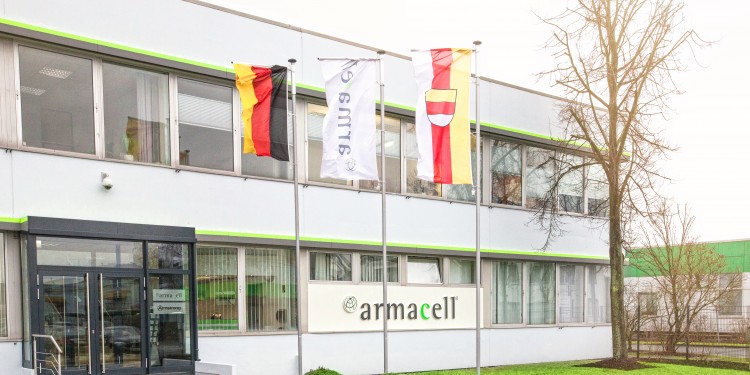
"We are always delighted to receive applications from people with international experience"
Münster University sees itself not only as being rooted in the local region, but also as having an international orientation – in teaching, in research, among students and among its administrative staff. Using reports, background information, portraits, facts and interviews, we will be showing just how wide-ranging the issue is.
On the basis of discussions with students, we know that they often wonder whether, and to what extent, international experience is an advantage for their later careers. In this series of interviews, personnel managers from various companies located in the Münsterland provide answers to these questions.
The second part of our series features Christof Heimlich, Personnel Manager at Armacell, a Münster company producing insulation materials:
What are the three most important criteria for your company when it selects new staff?
- Professional/technical qualifications and methodological competence
- Fitting in with our corporate culture
- Motivation when making an application
When you recruit people, how important for you is international experience, for example in the form of work placements, voluntary work abroad or a semester spent at a foreign university?
Our slogan – “Making a Difference around the World“ – shows it. We are a very international company, so we are always delighted to receive applications from people with international experience. This also demonstrates to us a certain openness and flexibility with regard to working with colleagues from other cultures.
In what other ways can young graduates score with you?
Above all in their personality. Of course a good degree, obtained quickly and including a stay abroad, is important. But apart from the purely intellectual abilities, it’s the personal qualities that make a difference – and they should correspond to Armacell. It helps if applicants are themselves aware of how they can distinguish themselves here. Completing work placements at different companies is certainly helpful. The work experience gained through such placements is a further advantage in our eyes.
What status does internationality have in your company as regards your staff, your business and your corporate culture?
A very high status. Armacell has 23 production sites in 16 countries across four continents. The headquarters of EMEA Region is in Münster, and here there are people of many different nationalities. The language we use in our work is very often English and project teams are almost always made up of international members. As part of our management development programme, staff from other countries take on leadership roles in Münster, and staff from Münster go and work abroad. Some of the young graduates that we recruited in Münster, for example, are now working in the USA or China.
Do you think that in future international experience will play an even greater role than today? And how should universities react to this?
Just how important intercultural competence is, is something that people only realize after they have worked abroad, or at least in an international team. Language skills that have been put to use in practice are certainly important too. What’s also important for success for those of our staff who, for personal reasons, do not wish to work abroad, is the ability to see their own behaviour in an intercultural context and to understand the cultural background of the colleagues they communicate and work with on an international level.
Ways in which universities can react to the issue of internationality are through partnerships with universities in other countries, bilingual courses of study and assistance in finding companies where students can complete their final dissertations in an international context.
